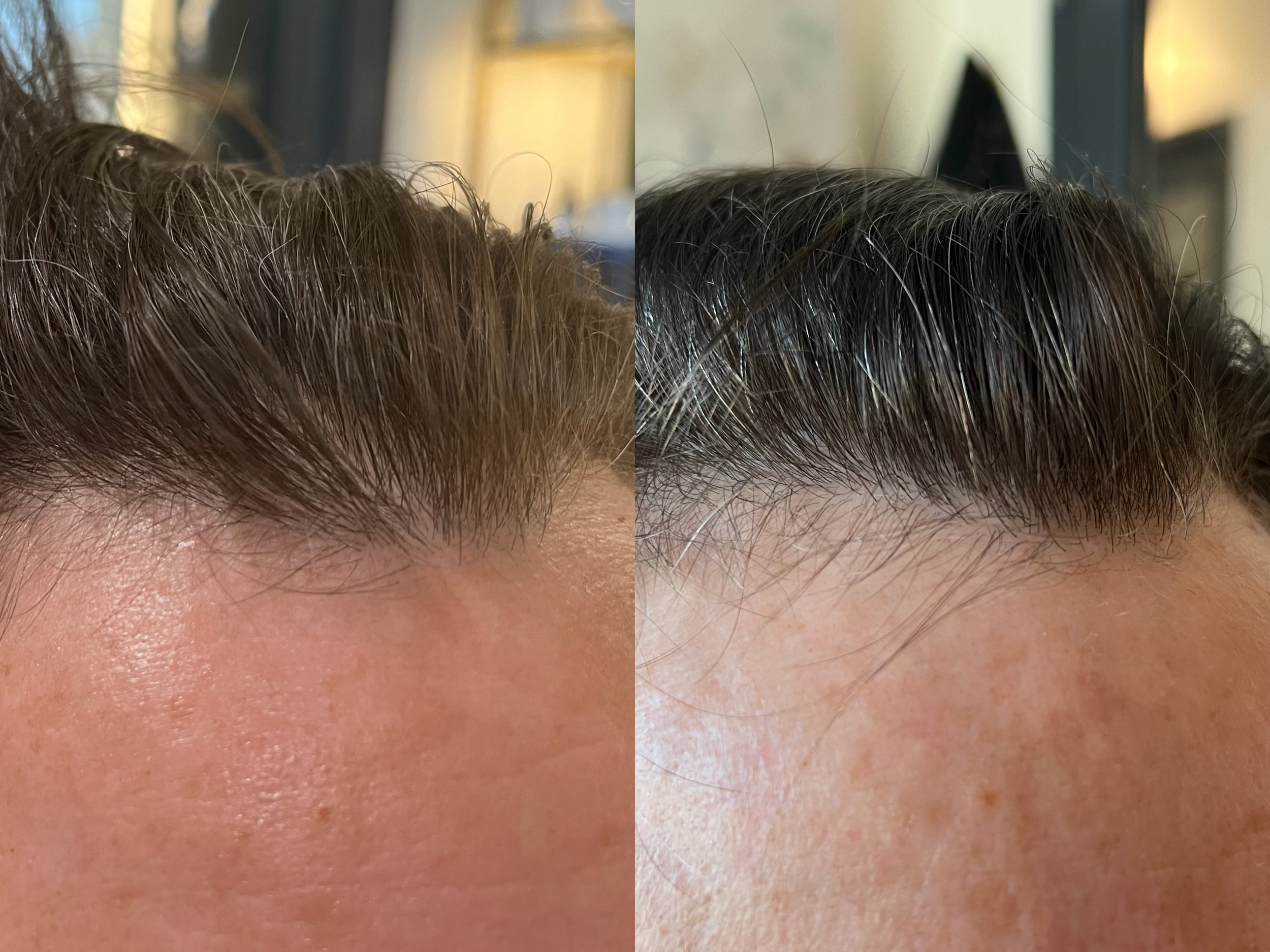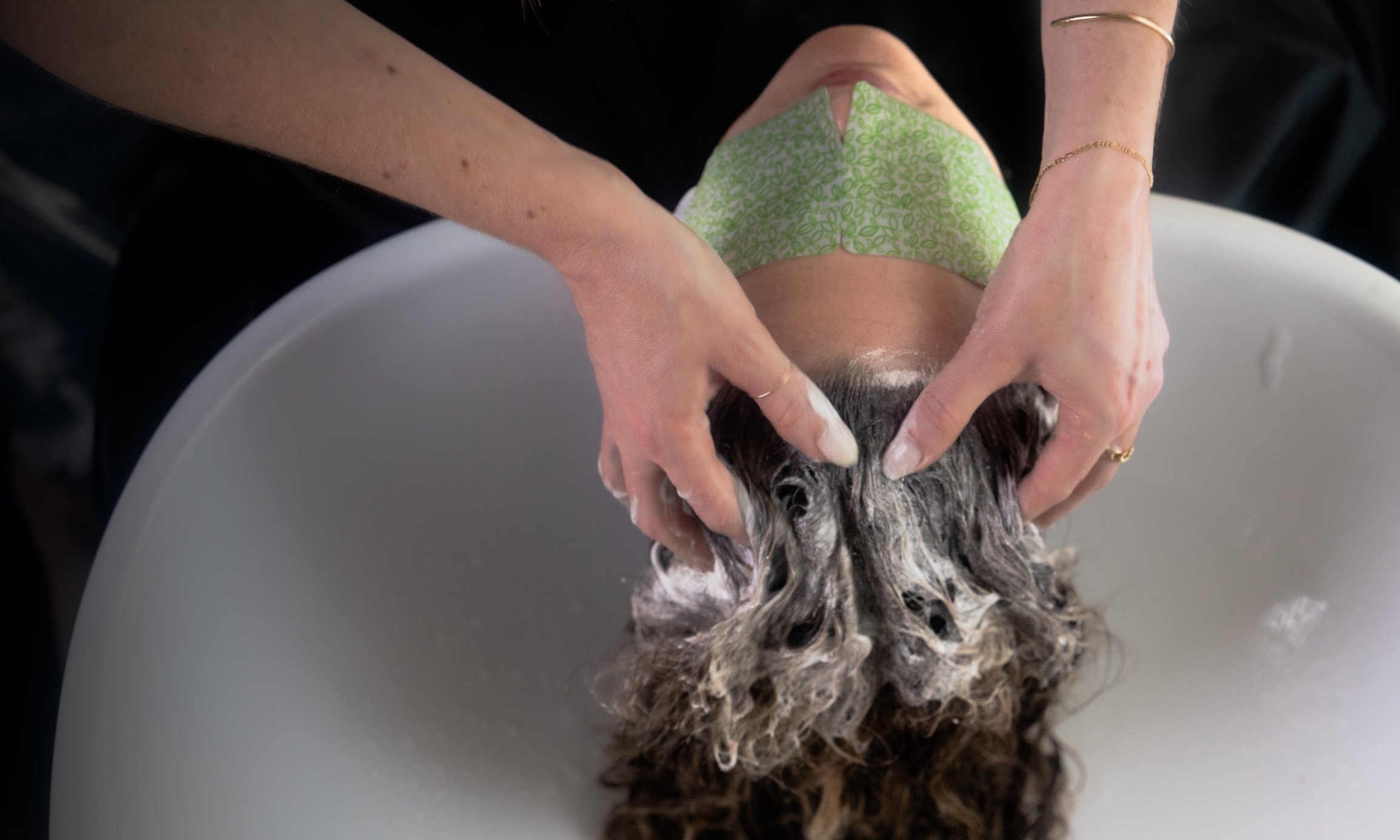
Hair Loss
TREATMENT OPTIONS
Hair loss can be influenced by a wide range of factors, with approximately 30-50 potential contributors at play.
Whether your hair loss is a gradual or sudden occurrence, it often signifies underlying issues within your body. Our primary objective is to identify the specific causes of your hair loss, effectively address the hair fall, and initiate immediate measures to stimulate hair regrowth. By narrowing down the root causes, we can develop targeted strategies to halt further hair loss and promote the restoration of healthy hair.
Our main goal is to provide OPTIMISTIC GOALS and reassurance during your hair loss evaluation. We understand that hair loss can be an emotional journey and we’re here to offer a comfortable space to discuss your unique experience.
We’ll begin by exploring the underlying causes of your hair loss, starting with a review of your personal and medical history. From there, we’ll create a customized at-home treatment plan tailored to your specific needs. This might involve simple lifestyle, nutrition, maintenance changes, or a regimen designed to stimulate new hair growth. Our custom treatment plans may include supplements, a topical solution, shampoo and/or stem cell technology. Every plan is designed to meet both your expectations and your budget.
While hair loss can be complex, understanding its cause empowers us to treat it purposefully. Leave your evaluation knowing that, with our support, you’re on the path to regaining both your hair and your confidence.
Hair Loss Evaluation
1hr / $200
Evaluations will benefit anyone who has been experiencing hair thinning, bald patches or excessive shedding. As a certified trichologist, we will be able to properly assess your case and suggest treatment plans and lifestyle changes that will improve your hair growth and benefit your scalp.
Step 1: Schedule your hair loss evaluation.
Step 2: Complete the hair loss intake form.
Step 3: Your evaluation will last approximately an hour. Be ready to provide recent lab results (if you have them), photos of your hair loss, and any other relevant information you'd like reviewed.
Step 4: During your appointment, we will review your intake form together to pinpoint the cause of your hair loss. We will also examine your hair and scalp using 250x magnification.
Step 5: A personalized treatment plan will be created based on the specific type of hair loss you're experiencing. Treatment plan prices vary, but monthly payment plans are available.
Step 6: All follow-up appointments are complimentary. During these visits, we'll track your progress, adjust the treatment as needed, and refill products.
TESTIMONIALS
“
Jenna has been cutting my hair since I moved to Portland in 2018. Since then, I’ve gotten married, had a child, the pandemic. All things that cause stress.
I started noticing hair loss before I moved to Maine but it was pretty significant after I had my daughter in 2022. Once the hormonal hair loss was over, in May 2023, I started working with Jenna to fix my hair loss and in the last 6 months I have seen DRASTIC improvement. Less patchy, thicker, the aerial view is insane! If you want a fantastic hair cut (she cut my hair into a bob style which was fun!) or need help with hair loss and growth, Jenna is your girl!
Highly highly recommend.
— SARAH T.
“
Jenna is incredibly knowledgeable about her work. I scheduled a consult with her after experiencing hair loss last year, and she created an individualized hair growth plan for me that involved several scientifically backed methods.
The interventions she suggested have shown amazing results and a ton of new growth (and in only about 6-8 months).
While I wait for my new layers to grow out, Jenna's given me haircuts and other strategies that make my hair look full and healthy. She's fully invested in my progress and has made me feel so much more confident about my hair. Not only is she quite good at what she does, but she's thoughtful and lovely every time I see her.
— ANNETTE D.












Hair Loss
FAQs
-
The term "alopecia" simply means hair loss. Alopecia refers to the partial or complete absence of hair from areas of the body where it normally grows. It is commonly used as a medical term to describe various types of hair loss conditions. Alopecia can affect the scalp, eyebrows, eyelashes, beard, and other parts of the body. There are different types of alopecia, each with its own causes and characteristics, such as alopecia areata, which involves patchy hair loss; male pattern baldness (androgenetic alopecia); and alopecia totalis, which involves total hair loss on the scalp.
-
There are different types of hair loss, such as male pattern baldness, female pattern baldness, alopecia areata (patchy hair loss), telogen effluvium (temporary hair shedding), and traction alopecia (hair loss due to tight hairstyles or hair pulling).
-
Hereditary factors play a significant role in hair loss. Male pattern baldness, for instance, is often inherited from either the mother's or father's side of the family. However, genetic predisposition doesn't guarantee hair loss; it simply increases the likelihood.
-
Hair loss tends to increase with age. While it can start as early as the late teens or early twenties for some individuals, it becomes more noticeable as people grow older due to the natural aging process and hormonal changes.
-
Certain medical conditions and treatments can cause hair loss. These include autoimmune diseases like lupus and thyroid disorders, scalp infections, nutritional deficiencies (e.g., iron deficiency), and cancer treatments like chemotherapy.
-
Psychological stress and trauma can contribute to hair loss through a condition called telogen effluvium. Severe stressors such as surgery, childbirth, significant weight loss, or emotional distress can disrupt the normal hair growth cycle, leading to increased shedding.
-
Poor nutrition and crash dieting lacking essential nutrients can impact hair health and contribute to hair loss. Adequate intake of protein, vitamins (especially B vitamins like biotin), minerals (such as iron and zinc), and essential fatty acids is crucial for healthy hair growth.
-
Maintaining a clean and healthy scalp is essential for promoting hair growth and preventing hair loss. Regular shampooing, scalp massage to improve circulation, and avoiding harsh chemical treatments can help maintain scalp health.
-
There are many myths and misconceptions surrounding hair loss, such as the belief that frequent shampooing or wearing hats can cause baldness. In reality, these factors have little to no impact on hair loss, which is primarily influenced by genetic, hormonal, and medical factors.
-
Hair goes through a continuous cycle of growth, rest, and shedding known as the hair growth cycle. Each hair follicle operates independently, cycling through these stages at different rates. Understanding this cycle is essential for evaluating hair loss and treatment options.




